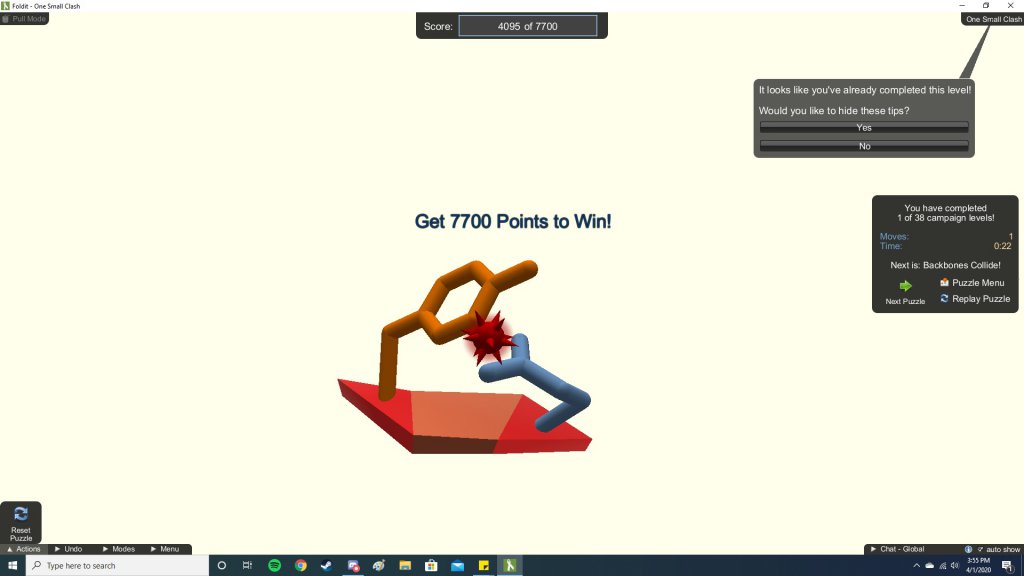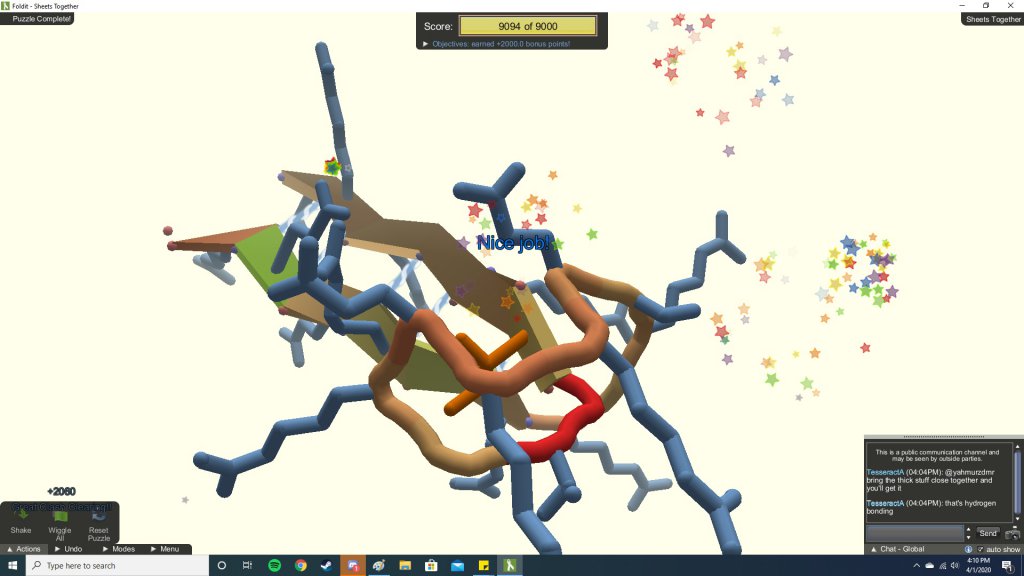Foldit Wants You to Save the World from COVID-19
In 2008, the University of Washington offered gamers Foldit, a puzzle simulation that challenged players to bend a 3D model into a specific shape. Points were awarded based on factors including how compact the design was or whether or not little structures sticking off of the model were touching each other. The structure was a protein, or more specifically, a hypothetical shape of a protein, and the game developers, actual scientists, offered an intriguing appeal to their audience — play the game and help save the world.
Foldit has slowly built a fan base since its launch to a now active audience of more than 50,000 players. In the game, players are offered a model of a protein, often stretched and contorted, which they then need to fold into a viable shape in order to reach a determined score in the game. Players are allowed to zoom in and out, rearrange their protein’s backbone, and fold it until the game’s scoring system deems it to be a viable model. Much like a video game, the player is presented with a menu of “moves” that allow them to constitute a model. They can “wiggle” it, which automates some of the folding to optimal results, and “shake” it, which will bend all of the structures hanging off of the protein, called “sidechains”. Once you reach a high enough score playing what feels like an online version of Bop It, the protein is considered a completed puzzle.

These simple game mechanics have real-world implications. By continuously folding proteins and creating models, gamers are actually creating a database of possible antiviral protein shapes that scientists are using to create medications.
How is this possible? I’m not a scientist here, so bear with me on the interpretation. Viruses have proteins sticking out like spikes on their membranes that they use to basically insert themselves into healthy cells in the body and replicate their DNA. This creates more and more of this virus, which eventually overwhelms the body. Antiviral proteins can stick on these protein spikes, making it more difficult for viruses to latch on and infect cells. If we know the right shape of these particular proteins, scientists can create medications to treat viruses.
Because of how difficult it can be to create viable models, Foldit gamers offer scientists a constant influx of shapes that they can use to improve predictive software that helps to design these proteins. Human beings are unparalleled at intuitive design and are just as adept at spatial recognition as most computers are, making Foldit a viable way to create data for scientific experiments.

This seems incredibly valuable, given our current reality. COVID-19 has thoroughly disrupted our day to day lives and shattered our sense of community, leaving the scientists scrambling to develop a cure. Foldit has already released multiple COVID-19 puzzles, offering you the opportunity to directly contribute to the effort of stopping the virus.
Foldit is completely free and available for all PC operating systems. If you’re intrigued by the idea that you can save the world while sitting on the couch in your underwear eating potato chips, download Foldit on their website.
Comments are closed.